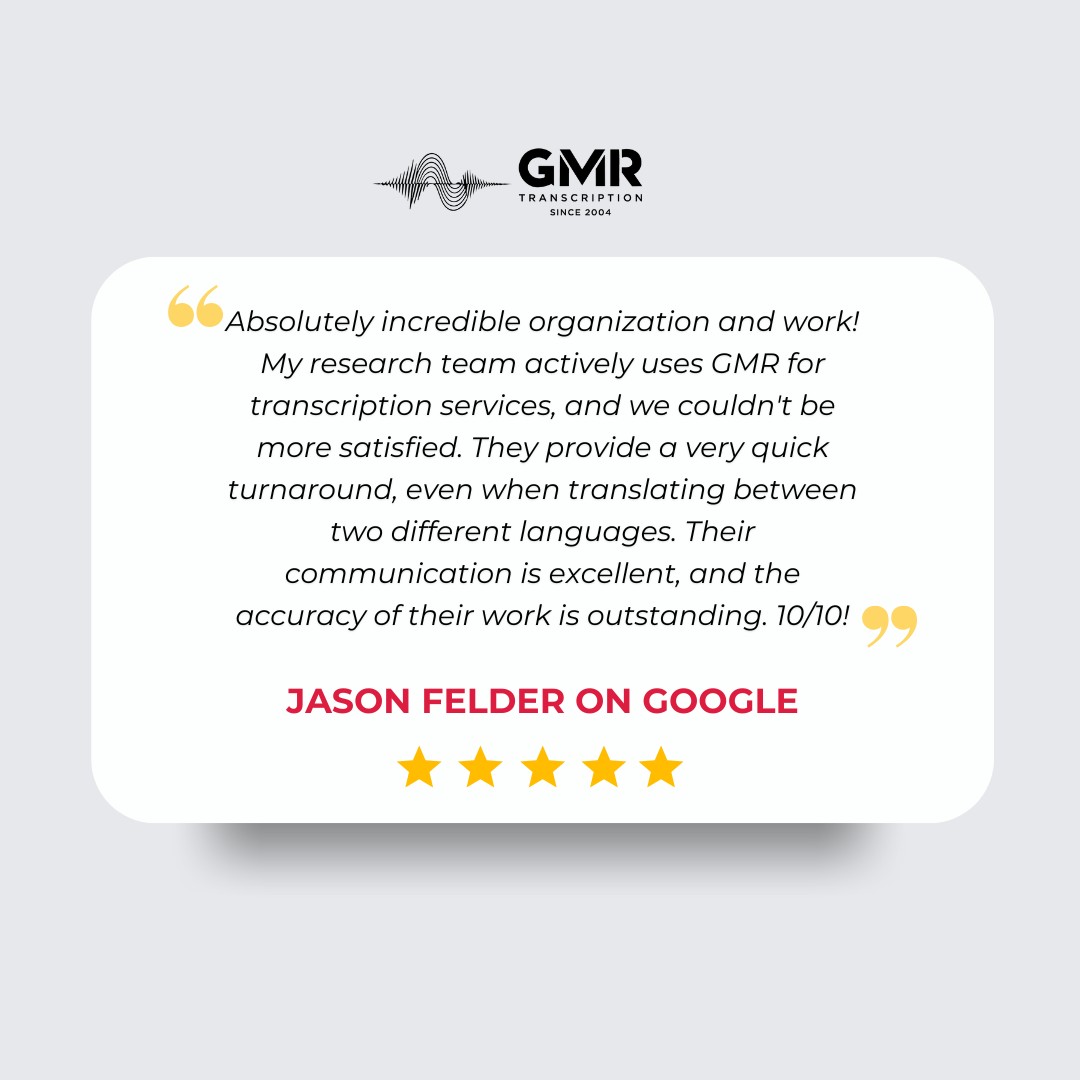4/23/2025
Academic research drives innovation, influences policy, and shapes public opinion. While researchers excel at analysis and critical thinking, they often lack the time or patience to handle transcription. That's where outsourcing transcription becomes essential.
However, not all transcriptions are created equal. Here's what you need to know to ensure your academic transcription is handled with the accuracy your research deserves.
Academic research typically encompasses two fundamental approaches: primary and secondary research. Recognizing the differences between these methods is crucial for conducting comprehensive and credible studies.
Primary research involves collecting data through interviews, surveys, observations, and experiments. This approach allows researchers to obtain firsthand information tailored to their specific study objectives. For instance, conducting interviews with subject matter experts or distributing surveys to target populations can yield unique insights directly relevant to the research question.
Engaging in primary research enhances your work's originality and contributes to the broader academic community by introducing new perspectives and findings. According to the University of Maryland Global Campus, primary research provides information more directly related to what or whom you are studying than secondary research.
Secondary research examines existing data and literature, including academic journals, books, government reports, and online databases. This method is valuable for understanding the current state of knowledge on a topic, identifying gaps in the literature, and framing your research within the context of existing studies.
While secondary research is generally more time-efficient and cost-effective, it may not provide the specific insights required for certain research questions. As noted by Qualtrics, secondary research offers a contextual understanding of existing knowledge, which can be instrumental in shaping and supporting your primary research efforts.
Combining primary and secondary research methods can lead to a more comprehensive understanding of your research topic. By leveraging existing literature to inform your primary data collection, you can ensure that your study is grounded in established knowledge while contributing new insights.

A substantial academic study often hinges on powerful interviews. Whether you're speaking with experts or surveying participants, the quality of your questions determines the strength of your findings.
And remember: Always record your interviews; relying on notes alone risks losing valuable insights.
Here's the reality: a 1-hour interview can take up to 4-6 hours to transcribe accurately. Between deciphering mumbled words, technical terminology, and multiple speakers, it's no wonder academics often outsource this task.
Transcription isn't just typing; it's precision work. Verbatim transcripts ensure that every nuance is captured, including pauses, tone, and emotion, which can be essential for qualitative analysis. A misheard word or skipped sentence can alter interpretations and weaken an argument. Especially in academic research relying on transcription services, where accuracy underpins credibility, precision becomes non-negotiable.
Outsourcing academic transcription isn't just a matter of convenience; it's a strategic decision that enhances research quality, efficiency, and focus. Here's why:
Transcribing interviews, lectures, or focus groups is a time-intensive task. By outsourcing transcription work, researchers can redirect their energy toward critical activities like data analysis, hypothesis testing, and manuscript preparation. This shift accelerates research timelines and enhances the depth and quality of scholarly work.
Professional transcription services employ experts skilled in handling diverse accents, specialized terminology, and complex speech patterns. This expertise ensures that transcripts are accurate and consistent, which is vital for maintaining the integrity of qualitative research. Accurate transcripts facilitate better data interpretation and support robust research findings.
Outsourcing transcription significantly reduces the time burden on researchers. Instead of spending hours transcribing, researchers receive ready-to-use transcripts promptly, allowing for a more efficient workflow. This efficiency is particularly beneficial when managing large volumes of data or working under tight deadlines.
Transcribed data is easier to navigate and analyze. Researchers can quickly locate specific information, identify themes, and extract quotes, streamlining the data analysis. This accessibility is crucial for collaborative projects, where team members must effectively reference and discuss specific data points.
Reputable transcription services prioritize data security, implementing encryption and confidentiality agreements to protect sensitive information. This assurance allows researchers to handle confidential interviews or proprietary data without compromising privacy or ethical standards.
Outsourcing offers the flexibility to scale transcription services according to project needs. Whether dealing with a single interview or a series of focus groups, transcription providers can adjust resources to meet varying demands, ensuring timely delivery without sacrificing quality.
Outsourcing academic transcription is a strategic choice that enhances research efficiency, accuracy, and focus. By entrusting transcription tasks to professionals, researchers can dedicate more time to critical analysis and interpretation, ultimately advancing the quality and impact of their academic work.
Academic research deserves more than rushed, error-prone transcripts. When every word counts, entrusting professionals with transcription ensures your data is preserved, accessible, and ready to inform your next significant insight.
Get Quality Transcripts With A 99% Accuracy Guarantee.
In academic research, precision and efficiency are paramount. GMR Transcription offers specialized services that convert your audio and video recordings into accurate, accessible text, enabling you to focus on analysis and interpretation. With a commitment to 99% accuracy for clear audio files, fast turnaround times, and stringent confidentiality protocols, we support scholars, educators, and institutions in achieving their research goals.